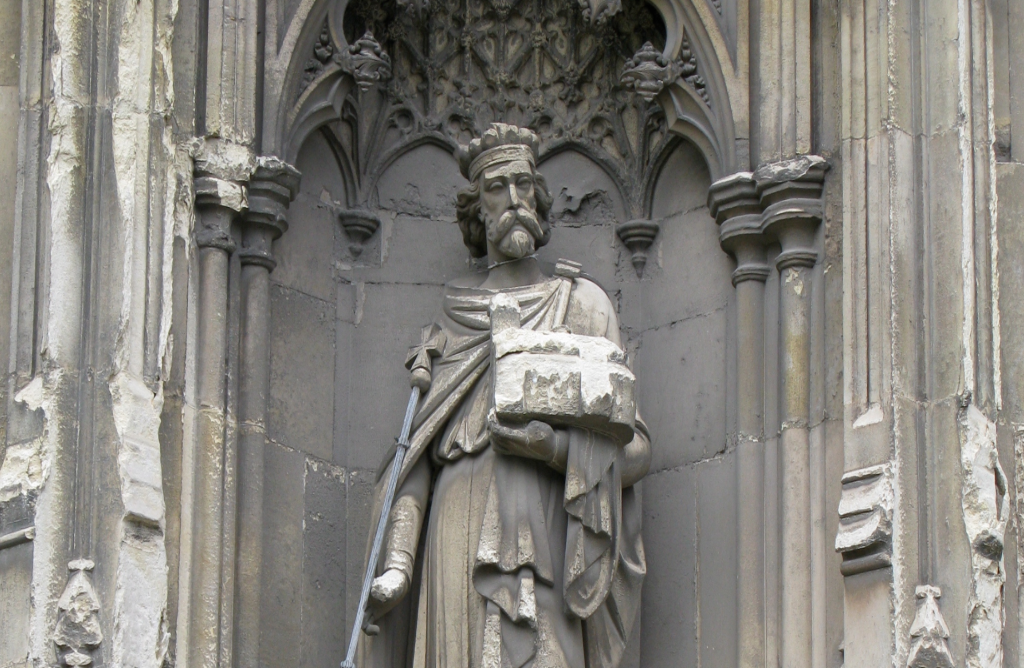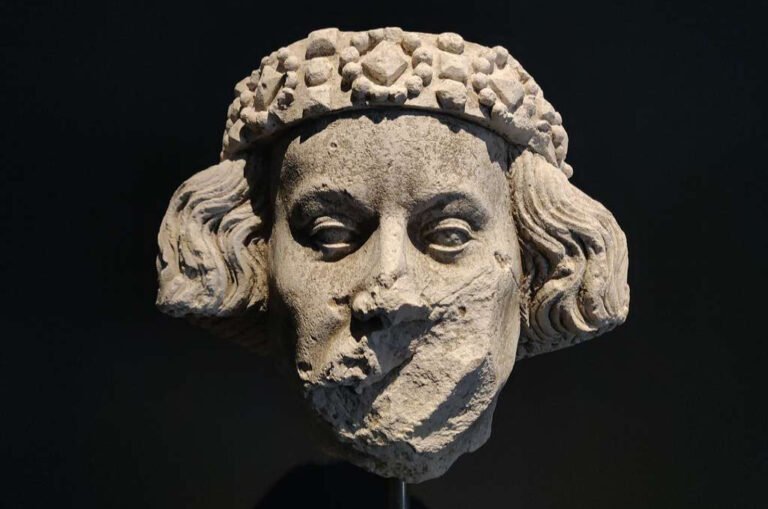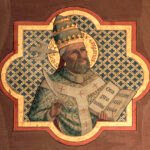King Æthelberht of Kent possesses a distinct position in English history. He was not only one of the most powerful Anglo-Saxon kings but also the first English ruler to embrace Christianity. His kingdom, enduring from the conclusion of the 6th century to the start of the 7th century, paved the way for critical changes in England’s political and religious environment. Æthelberht’s impact, from joining together the southern English kingdoms to helping in the foundation of English law, is still apparent in the present day.
Who Was King Æthelberht?
Born around 560 AD, Æthelberht was the son of King Eormenric, ruler of Kent. Kent, located in the southeastern corner of what is presently England, was an affluent and strategically vital kingdom due to its proximity to mainland Europe. When Æthelberht ascended to the position of authority after his father’s passing, he inherited a kingdom with both solid trading associations and military potential.
As a young ruler, Æthelberht was ambitious. His rule saw Kent expand its impact over neighboring regions, making him one of the most powerful rulers in Britain. But perhaps his most prominent impact came not through conquest or politics, but through a marriage that would change the course of history.
The Kingdom of Kent in the 6th Century
At the time of Æthelberht’s rule, Britain was not a united nation but a collection of competing Anglo-Saxon kingdoms. Kent was one of the most affluent due to its coastal area, allowing for trade with the Franks and other mainland powers. However, Kent’s political impact was more localized compared to dominant northern kingdoms like Northumbria.
Despite this, Kent’s strategic area made it a key player in the region’s power dynamics. Æthelberht’s diplomatic acumen, combined with Kent’s economic control, allowed him to form alliances and gain influence over neighboring kingdoms such as Essex and East Anglia.
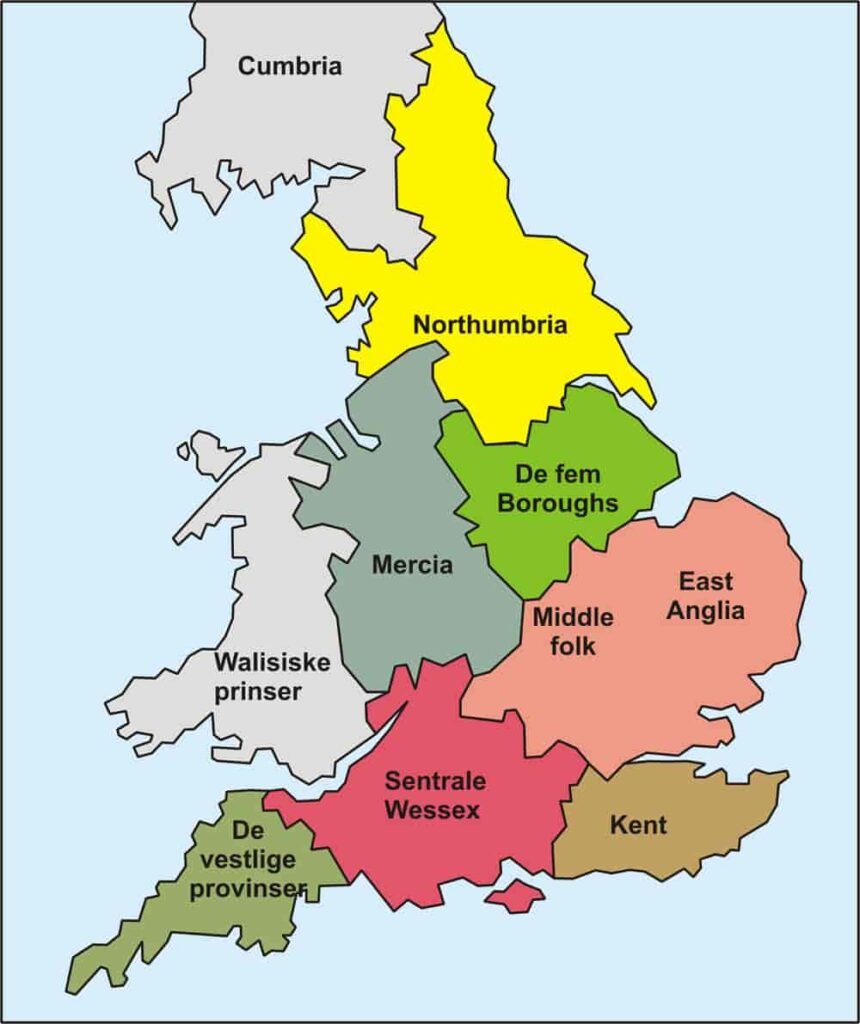
The Marriage That Changed History
One of the foremost significant moments in Æthelberht’s life was his marriage to Bertha, a Christian princess from the Frankish kingdom. This alliance brought a powerful association to the Christian world, as Bertha was an ardent Christian. Her marriage to Æthelberht opened the door to more profound relations between Kent and Christian Europe, and it is believed that Bertha played a critical part in encouraging her husband to consider Christianity.
Æthelberht and the Roman Mission
In 597 AD, one of the most transformative occasions of Æthelberht’s rule happened — the arrival of Augustine of Canterbury, a Roman monk sent by Pope Gregory I. This was a portion of the bigger Gregorian mission to convert the Anglo-Saxons to Christianity.

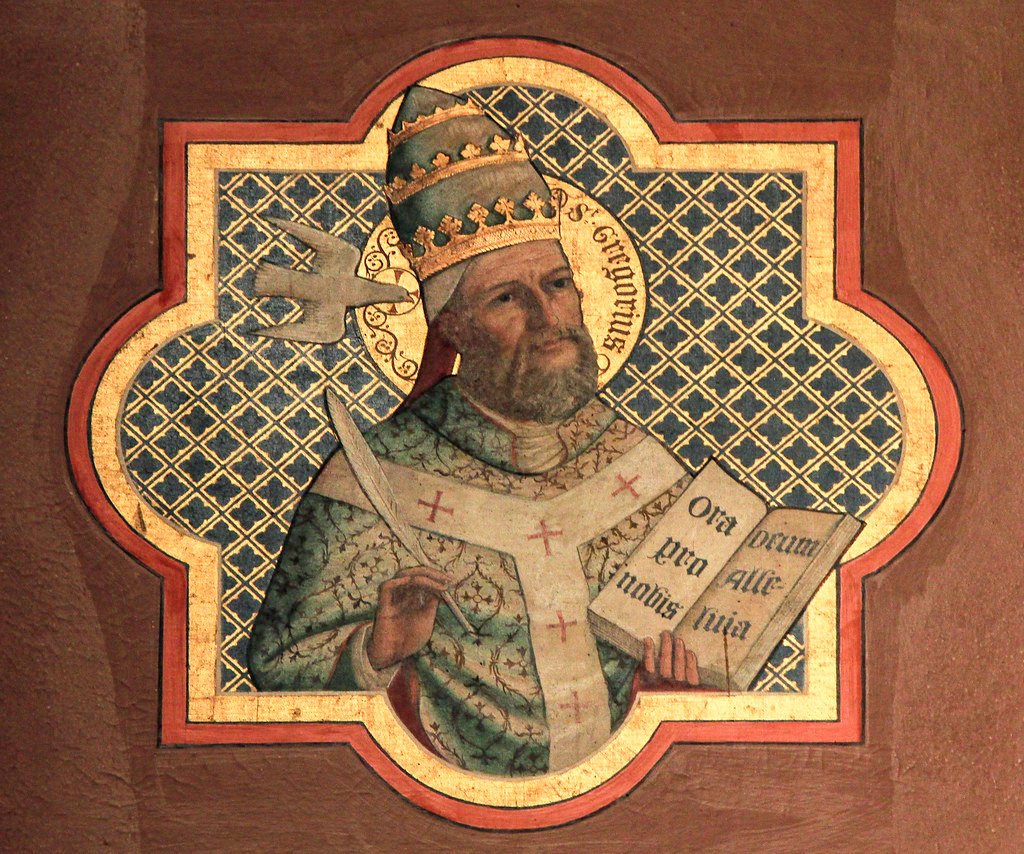
Æthelberht, though initially cautious, permitted Augustine and his monks to preach and indeed gave them land in Canterbury. This act of hospitality was significant because it laid the foundation for the future Christianization of Britain.
Æthelberht’s Conversion to Christianity
After observing Augustine’s endeavors and perhaps impacted by Bertha’s devotion, Æthelberht made the momentous decision to convert to Christianity. His conversion marked a turning point for Kent and afterward for Britain as a whole. By embracing Christianity, Æthelberht not only aligned his kingdom with the powerful Christian kingdoms of Europe but also set a point of reference for future English rulers.
Christianity brought a modern social and moral order, and Æthelberht’s decision to convert paved the way for the broader Christianization of the Anglo-Saxon kingdoms.
The Laws of King Æthelberht
Æthelberht was not only a religious reformer but also a lawful innovator. He is credited with issuing the first written laws in Britain, known as the “Laws of Æthelberht.” These laws were groundbreaking in that they set up a legal code based on compensation for wounds, theft, and other violations, reflecting a more deliberate and organized society. The laws also illustrated the impact of Christian ethical values, especially in protecting the church and clergy.
The Role of Æthelberht in Uniting the English Kingdoms
While Æthelberht did not create a united England, his influence over other Anglo-Saxon kingdoms cannot be overstated. He held a prominent position among the heptarchy (the seven kingdoms) and was even recognized by the powerful northern kings. His authority helped bring a semblance of unity to the region, especially as Christianity spread and connected these previously disparate kingdoms under a common faith.
Christianization of England
The conversion of Æthelberht marked the start of the widespread Christianization of Britain. His impact over neighboring kings, combined with the efforts of missionaries like Augustine, implied that Christianity rapidly spread all through the southern Anglo-Saxon kingdoms. Æthelberht’s example encouraged other rulers to convert, creating a chain response that would see most of Britain become Christian over the following few centuries.
The Establishment of Canterbury
During Æthelberht’s rule, Canterbury became the focal point of the English Christian community. Augustine founded a monastery in that location, which eventually became the headquarters of the Archbishop of Canterbury, who is the religious leader of the English Church. The city’s significance in English religious history has lasted for more than a thousand years, starting with Æthelberht backing Augustine’s mission.
King Æthelberht and the Roman Church
Æthelberht’s relationship with the Roman Church was vital to his reign. He corresponded with Pope Gregory I, receiving guidance on both religious and political matters. This connection helped to solidify Kent’s place within the broader Christian world and reinforced the influence of Roman Christianity in England.
Cultural and Economic Reforms Under Æthelberht
The introduction of Christianity also brought about cultural and economic reforms. Roman customs, art, and architecture began to influence Kent, and trade with Christian Europe flourished. Æthelberht’s reign saw a blending of Roman, Christian, and Anglo-Saxon traditions that would shape the identity of early medieval England.
Æthelberht’s Death and Succession
Æthelberht passed on around 616 AD, leaving behind a changed kingdom. He was succeeded by his son Eadbald, who at first rejected Christianity but afterward converted. Æthelberht’s legacy, however, lived on in the laws he set up, the religious institutions he supported, and the broader Christian culture he helped foster in Britain.
The Legacy of King Æthelberht
Æthelberht’s rule marked a significant moment in English history. His conversion to Christianity, his lawful reforms, and his support of the Roman mission helped shape the trajectory of both Kent and Britain. Modern historians respect him as a key figure in the transition from paganism to Christianity in early medieval Britain, and his influence is still obvious in the religious and legal institutions that characterize English society today.
Conclusion
King Æthelberht of Kent was more than just a ruler; he was a catalyst for change. Through his embrace of Christianity, his lawful changes, and his impact on neighboring kingdoms, he set the establishment for the Christianization of Britain. His rule is a testament to how one ruler’s decisions can modify the course of history, taking off an enduring legacy that endures through the centuries.

